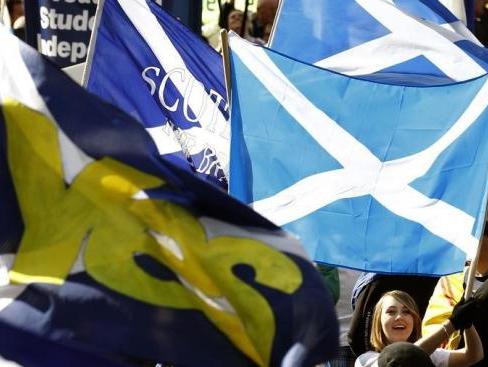As the poll lead for pro-Union campaign Better Together narrows to just six points, questions have been raised over who exactly is being seduced by the nationalist separatist ‘Yes’ movement led by Alex Salmond, and how they are being radicalised into voting for independence.
As there has been a large influx of new ‘Yes’ voters in the past fortnight it is worth examining the demographics this group is composed of, and trying to understand who Salmond is converting and how. According to polling organisation YouGov, political party affiliation plays a large part in movement towards the separatist cause.
After months of stagnant polling, ‘yes’ picked up eight points in the past month, and the YouGov polling on this matter is revealing. In that time the number of Labour voters intending to support independence shot up from a fifth to nearly a third, and Liberal Democrat separatists doubled. In contrast 97 percent of Conservative voters in Scotland intend to vote to stay in the Kingdom, and represent roughly sixteen percent of the Scottish electorate.
Fair to say then the Scottish Nationalists largely hail from the left of the political spectrum, which falls broadly in line with the high tax & spend political objectives of the Scottish National Party. This delights pundits on the extreme wing of British politics, with a recent Socialist Worker editorial celebrating that Scottish independence would ‘radicalise’ the country and “raise wider issues about the alternative to capitalism”.
Political affiliation to the SNP, Labour or the Liberal Democrats isn’t the only factor pulling people towards Salmond’s vision for an independent Scotland. Age is another, with those aged over 39 less likely to vote ‘yes’. This is a factor that has been capitalised upon by the Scottish government who have extended the franchise to sixteen year olds. The effect of income is less pronounced but still makes a difference, with C2DE income groups being more likely to vote for a United Kingdom as well.
Unfortunately, recent events indicate the radicalisation of yes voters has led to extreme behaviour not commonly associated with the Better Together campaign. Labour MP Jim Murphy was forced to cancel his speaking tour of Scotland last week after “concerted and coordinated” gangs “Shouting. Howling. Screaming. Covered in saltires, the St Andrew’s flag”.
Writing in The Spectator, the Scottish MP said “Since then it has got worse. In town after town it’s no longer undecided voters going about their shopping that I’m meeting but instead there are Yes crowds occupying the street corners I’m due to speak at. The language of treason is a favourite with them. They’re big on Quisling, although I doubt if they know much Norwegian history. Regularly I get called a terrorist and often a paedophile too.
“Ugly. But is it spontaneous ugliness? No, it’s not. The organisational tools are the various Yes sites on Facebook, affiliated to the official Yes Scotland campaign. It’s coordinated, determined and increasingly aggressive. I don’t know how high up it goes in the Yes campaign but I do know how widespread it is.”
Politicians of all stripes have had to endure violence and intimidation from Scottish nationalists over the course of the campaign. Last week former Labour Prime Minister Gordon Brown was verbally abused in the street. Scottish Conservative leader Ruth Davidson was bombarded with vile tweets during an independence debate last night, with some labelling her “a big fat dirty lesbo”. Even UKIP leader Nigel Farage was famously forced to take refuge in a pub and await rescue by the police after he was mobbed by angry nationalists.
Whichever way the referendum goes, it is going to be so close that neither side will be truly satisfied. If Scotland votes to go it alone, it will be to the radicalised and angry young left wing that the country is left to run. It is little wonder that Scottish Business leaders have been reluctant to come out in favour of the Union, as they fear recriminations from the Government if they do.
If the Union survives, the chances of another referendum coming in the next decade are probably quite high, and whatever Westminster does next will further enrage the nationalists. The unfortunate truth is the referendum campaign in years to come will be remembered as a dirty one, and a radicalising experience in which no one truly came away better off for it.

COMMENTS
Please let us know if you're having issues with commenting.